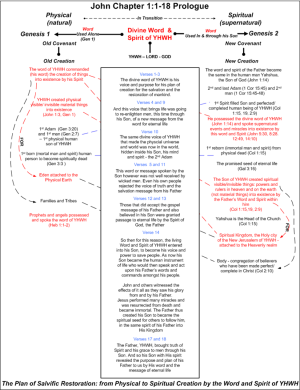I'm concerned not because of bad grammar but because of antiquated English, which impedes comprehension.
It's interesting how one translation I have great respect for handles the pronouns (Rotherham's):
John 1:1 Originally, was, the Word, and, the Word, was, with God; and, the Word, was, God.
2 The same, was originally, with God.
3 All things, through him, came into existence, and, without him, came into existence, not even one thing: that which hath come into existence,
4 in him, was, life, and, the life, was, the light of men.--
5 And, the light, in the darkness, shineth; and, the darkness, thereof, laid not hold.
6 There arose a man, sent from God, whose name was, John:
7 The same, came, for a witness, That he might bear witness, concerning the light, that, all, might believe, through him.
8 He, was not the light,--but, that he might bear witness concerning the light,
9 It, was--The real light that enlighteneth every man--Coming into the world.
10 In the world, he was, and, the world, through him, came into existence, and, the world, knew him not.
11 Into his own possessions, he came, and, his own people, received him not home.
12 But, as many as did receive him, he gave, unto them, authority, children of God, to become,--unto them who were believing on his name:
13 Who--not of bloods, nor of the will of the flesh, nor of the will of man, but--of God, were born.
14 And, the Word, became, flesh, and pitched his tent among us, and we gazed upon his glory,--a glory, as an Only-begotten from his Father. Full of favour and truth. (Jn. 1:1-14 ROT)




